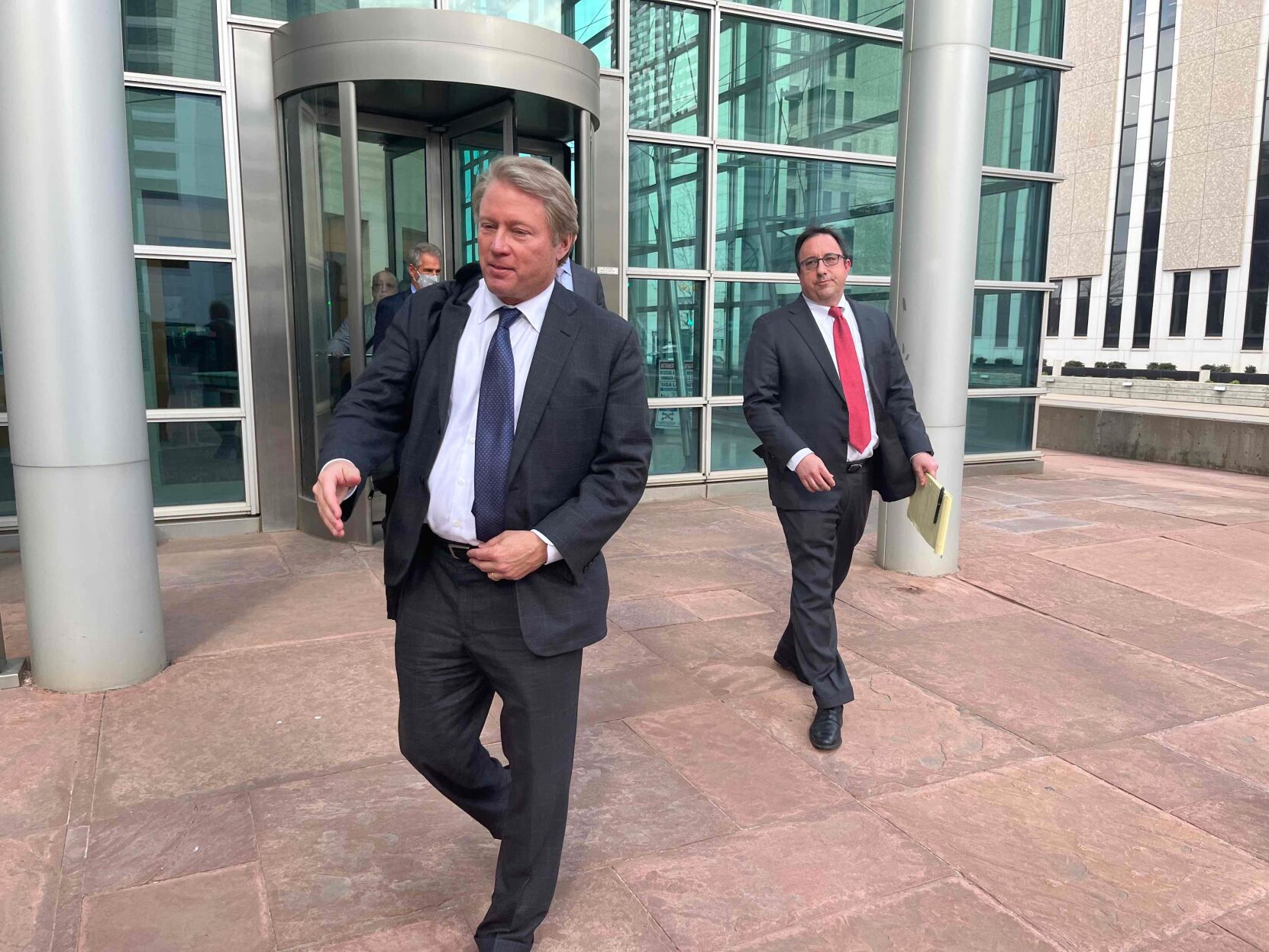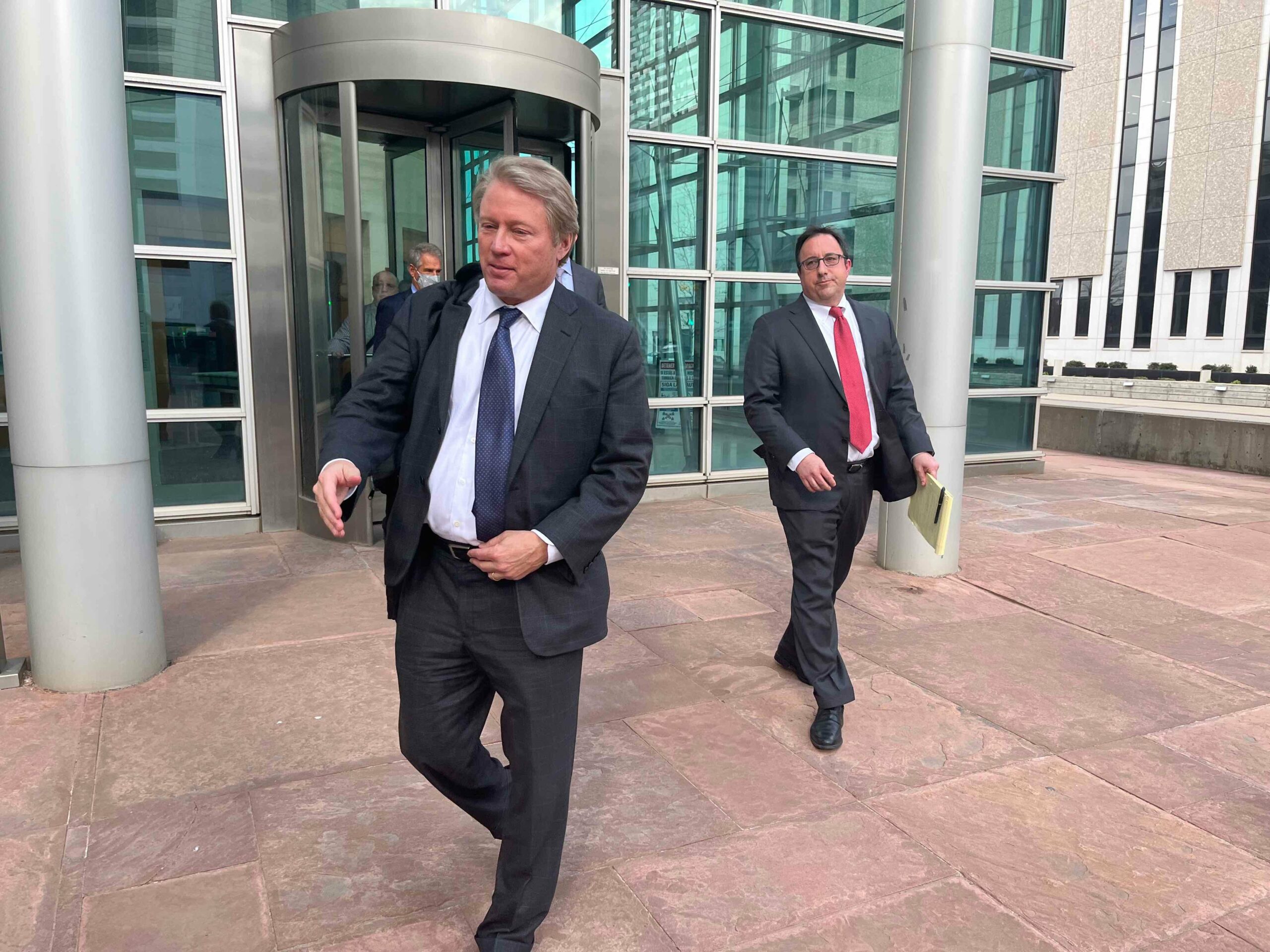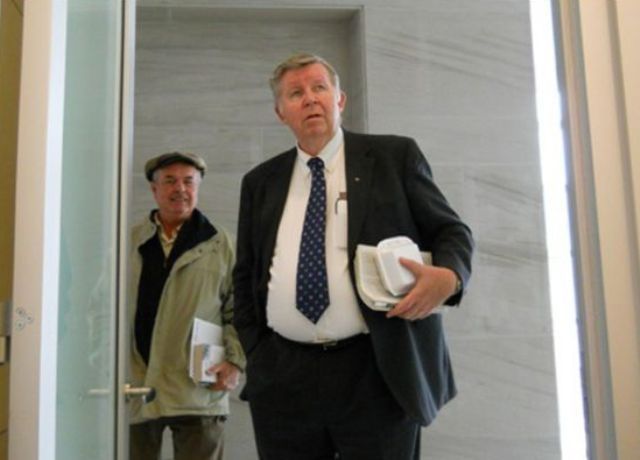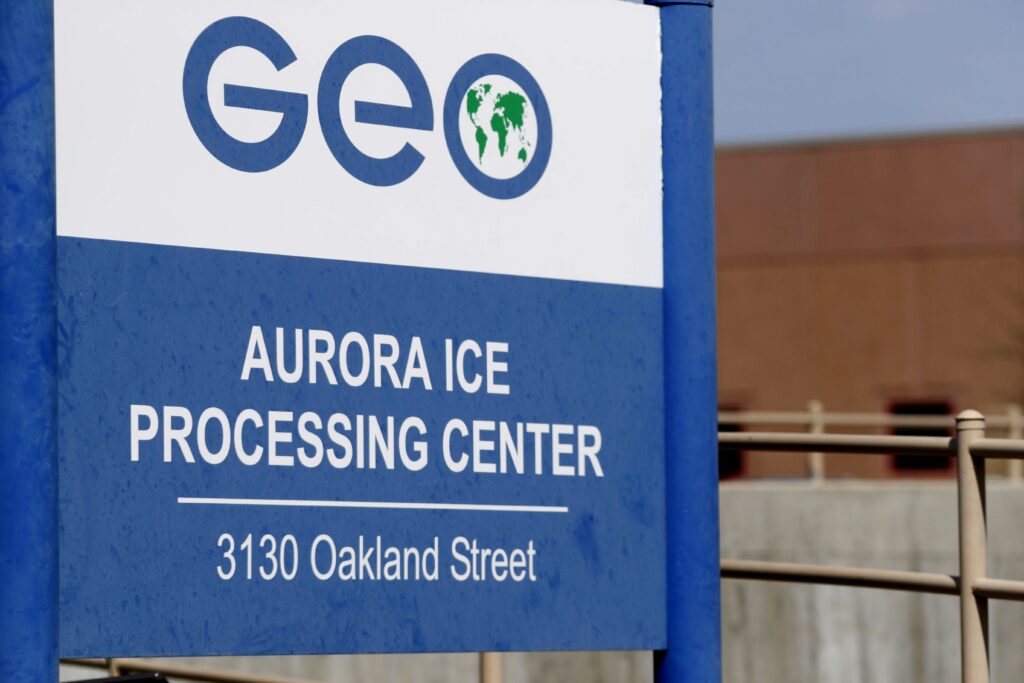Not guilty: Jury acquits DaVita, Kent Thiry of corporate conspiracy charges

DaVita, Inc. and its former leader, Kent Thiry, did not conspire to illegally restrict competition for DaVita’s employees, a jury decided on Friday in acquitting the defendants of three federal criminal charges each.
The trial marked the first time the U.S. Department of Justice had prosecuted a “gentlemen’s agreement” between cooperate executives to place some or all employees off-limits for recruitment by other companies. The department’s Antitrust Division had argued that the intent of those agreements was to keep DaVita employees at DaVita and extinguish all meaningful competition for their labor.
Addressing reporters outside the Alfred A. Arraj U.S. Courthouse in downtown Denver, Thiry teared up in thanking the jury.
“They were incredibly thoughtful and diligent,” he said, his voice shaking. “The jury did affirm that this case should not have been brought.”
The verdict represented a blow to the government’s theory that non-solicitation agreements for employees are inherently anticompetitive and illegal under longstanding federal law. The Antitrust Division had painted Thiry as incensed that his own DaVita executives would go on to lead other companies and attempt to recruit their former colleagues, so much so that Thiry “bullied” them into agreements not to solicit DaVita employees.
“He couldn’t stand the idea that some of his employees might prefer to work for someone else. So, he shut that competition down. That was his purpose,” Justice Department attorney Anthony Mariano told the jury during closing arguments.
The defense had insisted that Thiry was pursing legitimate business relationships with the companies deemed to be co-conspirators, and that the non-solicitation agreements actually benefitted workers because they forced DaVita, once it found out that an employee was exploring other options, to compete to retain that person.
“This was not about ending meaningful competition. It was about preserving meaningful competition while not ruining their relationship,” said defense attorney John C. Dodds of Thiry and the other CEOs.
Megan S. Lewis, the lead attorney for the Antitrust Division, declined to comment after the verdict.
The Antitrust Division had brought three charges against DaVita and Thiry, one for each of the non-solicitation agreements they entered into with Surgical Care Affiliates, Hazel Health and Radiology Partners. The CEOs of SCA and Radiology Partners received non-prosecution offers from the government and testified at the trial, while the leader of Hazel Health reportedly could not agree with the government on the terms of his cooperation.
Thiry has been a prominent figure in the business and political spheres, serving as DaVita’s leader for roughly two decades, beginning in 1999. Under his tenure, the company changed its name from Total Renal Care and moved its headquarters from California to Denver. A Fortune 500 company, DaVita operates in nearly a dozen countries.
Thiry has given at least $5.9 million toward Colorado ballot initiative campaigns since 2011, and backed a pair of successful constitutional amendments establishing the independent redistricting commissions that drew Colorado’s legislative district boundaries for the next decade. He also briefly considered seeking the Republican nomination for governor in 2018.
Months before his federal indictment in 2021, Gov. Jared Polis awarded Thiry a Governor’s Citizenship Medal.
The trial began on April 4 before a jury of seven men and five women. Although the defense attempted to dismiss the case, contending that Thiry and DaVita were not on notice that employee non-solicitation agreements were unlawful, U.S. District Court Senior Judge R. Brooke Jackson declined to dismiss the charges. He determined a reasonable jury could find that the defendants had the intent of suppressing competition for workers, which is illegal under the Sherman Antitrust Act of 1890.
The same federal prosecutors have a similar case pending in the Northern District of Texas against SCA, also for conspiring to restrict competition for employees. The judge in that case has not yet ruled on a motion to dismiss as the prosecution of DaVita proceeded in Colorado first.
The prosecution called multiple corporate executives who testified about their role in enforcing the non-solicitation agreements, some of which required DaVita employees to tell their bosses before they could be considered for positions at the three alleged co-conspirator companies.
“I was uncomfortable with it. I never liked it,” testified Bridget “Bridie” Fanning, the human resources head at SCA who had reminded recruiters repeatedly not to reach out to DaVita employees for job openings at SCA.
The defense had argued that however jurors felt about the agreements or Thiry personally, the defendants’ actions did not amount to crimes. An expert economist had opined that he had seen no telltale signs of a conspiracy when analyzing compensation and turnover data.
When asked after the trial what he would say to DaVita employees who disapproved of the non-solicitation agreements, Thirty declined to comment.
“We appreciate the jury’s decision and are grateful to put this matter behind us,” a spokesperson for DaVita said in a statement. “We remain committed to operating with integrity and upholding the highest standards of the law.”















